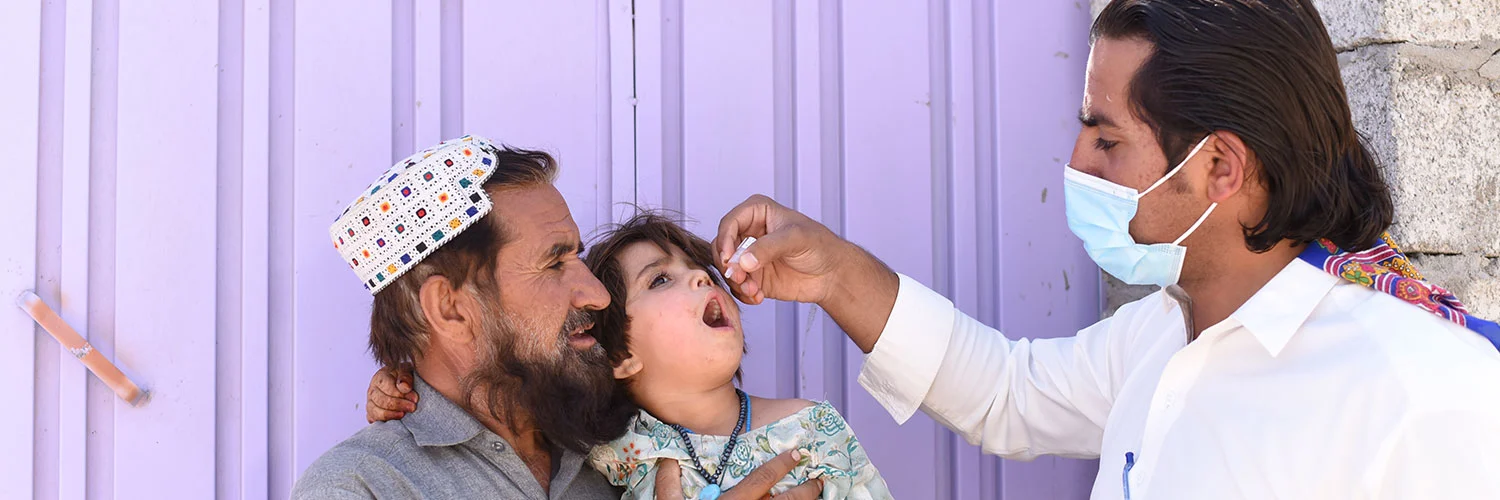Islamabad, February 2, 2024 – Twenty-eight environmental samples collected from 19 districts in January and two collected from Quetta and Khuzdar in December 2023 have tested positive for wild poliovirus type 1 (WPV1).
According to the Regional Reference Laboratory for Polio Eradication at the NIH, the virus was found in four sewage samples each from Quetta and Karachi East, in two samples each from Chaman, Peshawar, Karachi South and Karachi Keamari, and in one sample each from Karachi Korangi, Karachi Central, Karachi Malir, Jamshoro, Sukkur, Hyderabad, Pishin, Kech, Nasirabad, DG Khan, Rawalpindi and Lahore collected between January 2 and January 16.
The detections have brought the number of positive environmental samples reported in 2024 to 28 and 126 in 2023. All detected positive samples contain the imported virus cluster, YB3A.
Federal Minister for Health Dr Nadeem Jan said that the imported virus cluster was found in 120 of 126 positive sewage samples and three human cases last year. “As long as this virus survives, children on both sides of the border and in the world remain at risk, which makes it imperative for both governments to work together on eradication,” he said.
Federal Secretary for Health Iftikhar Ali Shallwani said that Pakistan is committed to wiping this virus out and is aiming to interrupt virus transmission by the end of 2024.
He said: “Last year, we held several mass vaccination campaigns and utilized innovative strategies to reach children from transit vaccination to nomadic vaccination and integrated health camps. These efforts will continue at full pace this year as well to ensure that all children are protected.”
“Protecting children from this paralytic disease is our top priority and we will continue our all-out efforts to end polio in Pakistan,” the secretary said.
Coordinator for the National Emergency Operations Center for Polio Eradication Dr Shahzad Baig said that multiple vaccination campaigns were held in 2023 to boost children’s immunity, adding that a nationwide campaign was conducted from January 8 to 14 and several more are planned in all districts of detection.
Note for the Editor:
Polio is a highly infectious disease caused by poliovirus mainly affecting children under the age of five years. It invades the nervous system and can cause paralysis or even death. While there is no cure for polio, vaccination is the most effective way to protect children from this crippling disease. Each time a child under the age of five is vaccinated, their protection against the virus is increased. Repeated immunisations have protected millions of children from polio, allowing almost all countries in the world to become polio-free, except for the two endemic countries of Pakistan and Afghanistan.
For further information, please contact:
Ms Amina Sarwar, Communications Officer, NEOC
Contact No: +923125190383
Email: This email address is being protected from spambots. You need JavaScript enabled to view it.

